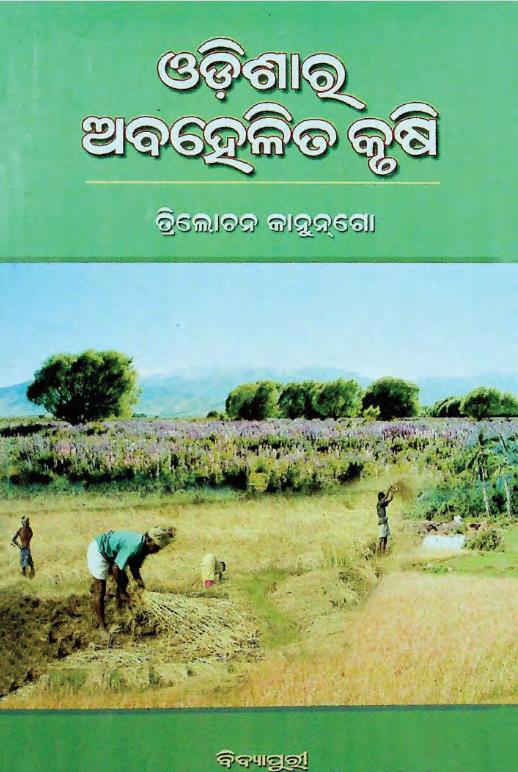Written by Trilochan Kanungo, published in 2005, the essay Odishara Abahelit Krushi explores the unique agricultural landscape of Odisha, a state renowned for its diverse farming practices and natural resources. The title translates to Neglected Agriculture of Odisha, and the essay delves into the historical and contemporary challenges faced by farmers in the region, particularly with respect to food grains such as rice.
Odisha’s agricultural heritage is deeply intertwined with its natural formations. The state’s varied topography, ranging from coastal regions to hilly terrains, significantly influences its agricultural practices. Rice, known as the staple food of Odia households, is cultivated extensively across the state. The fertile alluvial soil of the river deltas provides an ideal environment for rice cultivation, which has been the backbone of Odia agriculture for centuries.
However, despite the rich potential of its agrarian landscape, Odisha faces several challenges that have led to the neglect of its agriculture sector. The essay highlights factors such as inadequate irrigation facilities, reliance on monsoon rains, and traditional farming methods that hinder productivity. Many farmers continue to depend on rain-fed agriculture, making them vulnerable to climate fluctuations. The erratic monsoon patterns and frequent droughts hinder the timely sowing and harvesting of crops, leading to reduced yields.
Irrigation is a critical aspect of agricultural advancement that Kanungo emphasizes in his essay. While Odisha possesses numerous rivers and water bodies, the lack of efficient irrigation systems has impeded the potential for year-round farming. The state’s irrigation infrastructure remains underdeveloped, resulting in water scarcity during crucial growing periods. The essay calls for greater investment in irrigation projects to optimize water usage and augment agricultural productivity.
Beyond rice, the essay also discusses other food grains cultivated in Odisha, such as maize, millet, and pulses, which contribute to the diversity of the state’s agriculture. However, these crops are often overshadowed by rice, resulting in a lack of focus on crop rotation and diversification. Kanungo urges for a more holistic approach to agriculture that balances the cultivation of rice with other food grains to ensure food security and improve the livelihoods of farmers.
Additionally, the impact of globalization and changing market dynamics poses further challenges for Odisha’s agriculture. Farmers face pressure from fluctuating market prices, which can lead to economic instability. The essay argues for the need to educate farmers about market trends and provide them with the necessary tools and resources to adapt to changing economic landscapes.
Books Info
| Books name | Odishara Abahelit Krushi / ଓଡ଼ିଶାର ଅବହେଳିତ କୃଷି |
| Author | Trilochan Kanungo |
| No Of pages | 195 |
| Publisher | Pitambar Mishra |
| Publication | 2005 |
| Printed At | RoyalHapton Co |
| Distributor | NA |

